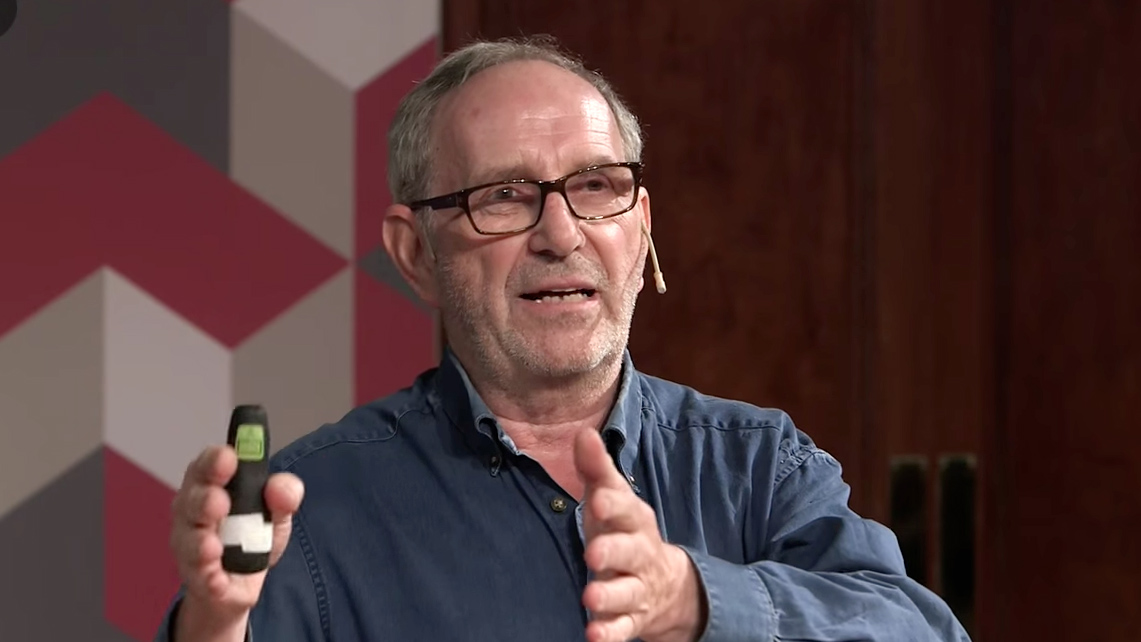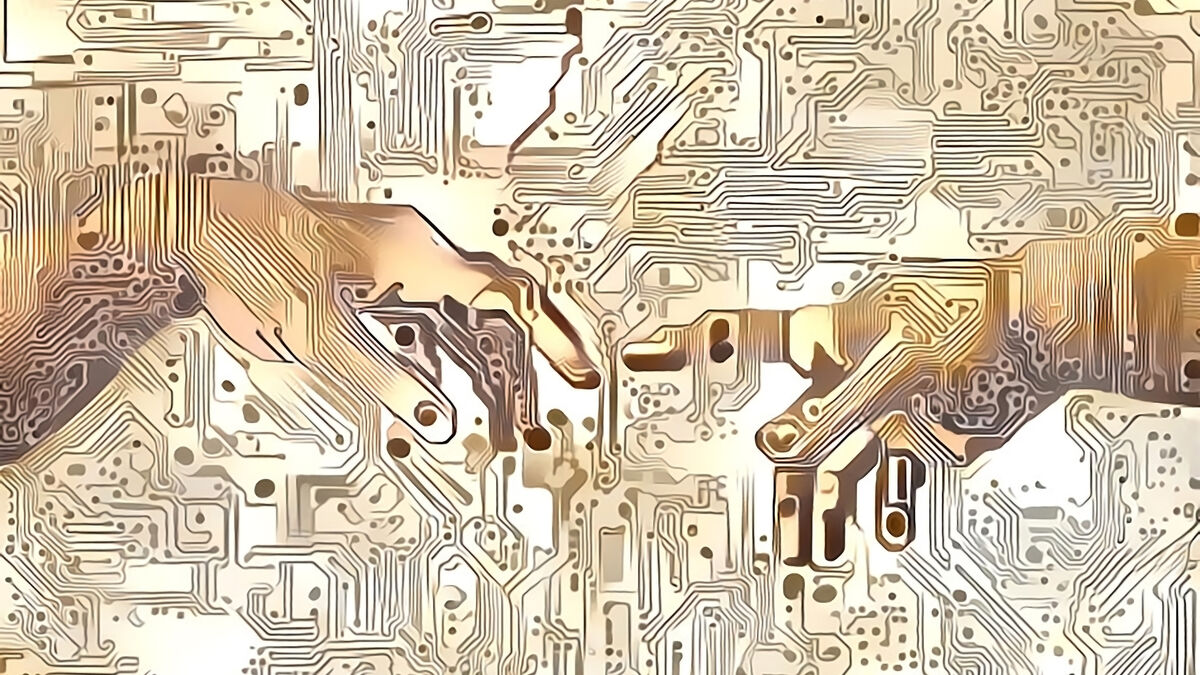Open Letter to Christians on the Future of Humanity
Lincoln Cannon
25 September 2010 (updated 10 February 2026)

On 14 September, Thomas Horn of Raiders News Network wrote an “open letter to Christian leaders on biotechnology and the future of man.” The letter attacks Transhumanism and merits response from religious Transhumanists. To that end, here are my thoughts.
The letter begins by advocating that Christians should offer an alternative to the Transhumanist vision, and uses “fear” to emphasize the obligation. Why? Because Transhumanism persuasively undermines and supplants some traditional theological positions, and thereby threatens the power structures of traditional religion.
Should we care? Clearly the author and others empowered by threatened religious views care. Should the rest of us care? I am reminded of thoughts expressed by Mormonism’s founder, Joseph Smith, who condemned religious dogmatism, claiming that it damns us, holding us back from potential advances in human flourishing – holding us back from becoming as God. Horn’s letter is an example of that dogmatism.
To the extent such dogmatism informs the Christian community, we all suffer the negative consequences of fundamentalism, which perpetuates slavery to oppressive understandings of “God.” More bluntly, echoing Paul from the New Testament, fundamentalism perpetuates worship of Satan, the would-be god that would raise itself above all others, declaring itself God at their expense. Why not turn to Christ, the God that would raise us together as joint heirs in the glory of God? Joint heirs!
What happens to fundamentalist power structures as we take on the identity of Christ and become joint heirs in the glory of God? They fear. They would have us fear. That’s why they advocate alternatives to Transhumanism, rather than complements. That’s why they appeal to fear rather than make constructive calls to careful attention as we consider both the risks and the opportunities presented to us by Transhumanism.
Horn’s letter proceeds to label as “contradictory” the adoption of Transhumanism by some Christians. This is ironic. “Transhumanism” is merely a new name for an ancient idea advocated by early Christians and their predecessors. Transhumanism reflects the eternal holy call for humanity to mature into the fulness of its divine potential. Transhumanism and religion are not necessary enemies. We can (even should) be religious Transhumanists, but we cannot be fundamentalists and Transhumanists.
The irony is particularly apparent when we look through Christian scripture, which persistently advocates human improvement and readily exemplifies change in humanity’s understanding of and relationship with God throughout history. The dogmatists of our day do not see the irony of their position, much like the dogmatists of Jesus’ day, who sought to kill him for advocating “heresies” such as the the immanence of God in humanity.
Furthering the irony, Horn’s letter quotes C S Lewis’ concern that humans, eventually achieving technological power sufficient to control human evolution, will become slaves to their own ability to shape themselves. Do they not see that this is a criticism of the God they worship? Does that God not purport to have power over our evolution? Is that necessarily evil? If so, God is evil. If not, why should we not aspire to learning how, ethically, to use that same power, to become as God?
After all, are we not the children of God? Should not children learn to become as their parents? That’s what Christian scriptures teach us, yet fundamentalists fight against the idea. Do they know only fear of risks? Awareness of risks is important, but it’s not the whole picture.
There is, in Horn’s letter, an occasional glimmer of acknowledgement of the opportunities presented by emerging technology. However, that acknowledgement never rises to the level of recognizing any good in Transhumanism. Rather, the rhetoric focuses on a fearful call to action against scientists, technologists, politicians and militarists, portrayed as hell-bent on modifying humanity into a mere “Frankenstein’s monster” at any cost.
Of course, this is a straw man representation of Transhumanism and Transhumanists, many (probably most) of whom share an acute concern with the risks presented by emerging technology. Indeed, it wouldn’t be a stretch at all to say that Transhumanists “wrote the book” on risks associated with emerging technology. Familiarity with the opportunities facilitates familiarity with the risks. Transhumanists know both better than do most others.
Why do Transhumanists not focus almost exclusively on the risks, as do fundamentalists? Again, the focus is different because the motives are different. The fundamentalists, consciously or not, recognize Transhumanism to be a threat to their power.
Synthetic Biology
Horn’s letter criticizes synthetic biology as aiming to create life “unlike any of the versions God made.” Implied is hubris. Yet we’ve been engaged in this “hubris,” constructively, and at the command of holy texts and the divine esthetic moving in our souls, for millennia. Domesticated animals and plants, which are intentional products of humanity’s primitive science, are unlike their ancestors. Did God create them? Only with our participation.
Who, actually, is engaged in hubris? I say its the fundamentalists engaged in hubris, who claim to know humanity’s limits and pretend to gate-keeping our relationship with God.
Patenting New Life Forms
Horn’s letter implicitly associates Transhumanism with advocacy of patenting life forms and aspects of their anatomy, such as genes. Transhumanists have a wide variety of opinions on this subject. It’s simply inaccurate to imply some kind of monolithic Transhumanist agenda in this area.
Horn’s letter also suggests that this patenting will lead to authoritarian control of enhancements that will replace human nature. It could! Let’s make sure that doesn’t happen. Let’s also make sure we aren’t fixated on a dogmatic understanding of “human nature” that doesn’t account for the self-transcendence that has always been an essential aspect of what it means to be human.
Human Cloning
Horn’s letter outlines some history related to cloning. Clearly cloning tech raises important ethical questions to consider and debate. Transhumanists recognize the need for and extensively engage in such debate.
Redefining Humans and Human Rights
Horn advocates the idea that it is one’s humanity that should be the basic factor in determination of rights and dignity. By that standard of human exceptionalism, God has no rights, responsibilities or special dignity.
Because that’s not acceptable for Christians, we must think harder about how to articulate the characteristics and values by which we make such judgments. We must look for an articulation that acknowledges the extent of prehuman dignity we intuitively find in fellow animals and the biosphere generally, the greater dignity we know in humans, and the yet greater posthuman dignity we attribute to God.
Nanotechnology and Cybernetics
Horn’s letter mentions rapid advances in the fields of nanotechnology and cybernetics. These advances, too, raise important ethical questions to consider and debate. Transhumanists recognize the need for and extensively engage in such debate.
Transhuman Eugenics
In accordance with Godwin’s Law, Horn finally gets around to his lowest point and associates Transhumanism with Nazi eugenics. I wish it were needless to say that Transhumanists, on the whole (although there are silly exceptions as there are among the adherents of all ideologies), simply do not endorse anything like fascist eugenics policies.
Humans have been enhancing themselves, their communities and their environment for millennia, and that’s accelerating. Transhumanists recognize this. They also generally recognize that there are good and bad ways of continuing human enhancement. Let’s mitigate the risks and realize the opportunities. This is the practical trust of Transhumanists, resonating with the practical faith advocated by Christian scripture.
Germ-Line Genetic Engineering
Horn discusses advances in germ-line engineering, noting the potential to re-engineer humanity to become a new species. As before, these advances merit serious ethical deliberation. Such deliberation is one of the principal goals of Transhumanism, as articulated in the Transhumanist Declaration.
Heaven and Hell Scenarios
Horn rounds out his letter with descriptions of heaven and hell scenarios consequent to a continuation of our present acceleration in technological evolution. His descriptions of heaven scenarios are packaged with implications of improbability, charges of hubris, and scenario-undermining appeals to hidden hells in the heavens. His descriptions of hell scenarios are packaged with implications of probability and expressions of respect for the prophets of doom.
What of the practical consequences? If we believe we are doomed, how will we behave? If we believe there are no risks, how will we act? Isn’t there a better way? There certainly is. We should recognize the negative possibilities and actively work against them, with confidence that we can succeed. Thank God for negated negative prophecies.
Conclusion
My fellow Christians, were we, or were we not, created in the image and likeness of God? Are we, or are we not, the children of God? Our answers depend on the kind of God we worship: whether the God of death, which would raise itself above us; or the God of life, which would raise us together.
Religious Transhumanists choose the latter. We would worship, through emulation, the God of life. We would recognize the risks and seek to mitigate them. We would recognize the opportunities and seek to realize them. Unlike the fundamentalists, we acknowledge that humanity’s understanding of and relationship with God has improved throughout time, and we expect this to continue. This we do, not passively, but with engagement reflecting a practical faith, a working trust in our posthuman potential provided by God, our posthuman creator.


